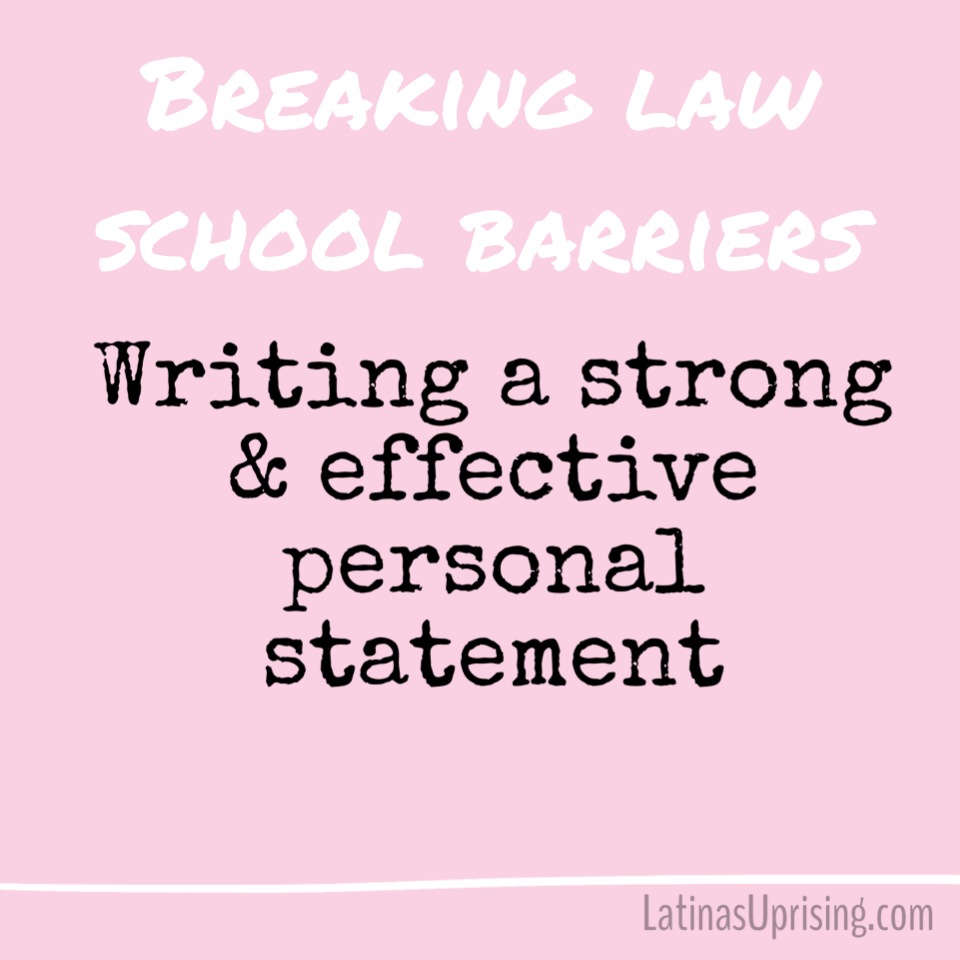Breaking Law School Barriers: Law School Essays
This series, Breaking Law School Barriers, tackles the big and small issues that come into play when you’re deciding if you’ll even attend law school. The purpose is to give practical advice for college students, and for current law students and attorneys to give suggestions about their real world experience.
Nothing seems to stop people in their track more than having to write about themselves. It’s a hard endeavor. I see it all the time in clients who have to write statements about certain events in their lives. The client and I are going along just fine, and when we move on to the next step of writing their statement, I suddenly get static air from them. It’s hard for them because the government is requesting that they write about private, embarrassing, and/or traumatic information.
Obviously, law school essays do not rise to this level of chagrin, but they are still difficult to do. And for many of us who have overcome severe adversity and opt to discuss it–it can be embarrassing and distressing to share that information to virtual strangers. I don’t remember the exact theme of my personal statement, but I do remember writing one essay for a scholarship that was very difficult for me to do because it involved discussing information that, while relevant to wanting to practice law, made me feel very vulnerable.
So, I get it–essay writing isn’t fun and usually it’s not easy, but it’s necessary. I can’t really oversell how vital the essay will be to the application process. I know many argue that schools only care about GPAs and LSAT scores (and they do), but they also look for personality and potential outside of numerical figures.
The important thing to remember is that this is also a writing sample. The grammar, tense, voice, etc should all be on point. Have multiple people review it, go to writing centers if those are available, and don’t fear the red ink! Meaning, people are going to give you lots of feedback and perhaps phrases & paragraphs you loved will be crossed out. Consider all suggestions and be open-minded about making changes to improve your statement.
Focus on yourself and your goals/experiences. It is much easier and more convincing to write about adversity you’ve overcome; goals you’ve met; activities you are passionate about, because with these topics you can discuss real events and people in your life. Here, you not only tell what you want to do, but you can back it up and show it with what you have accomplished.
Remember that we all have a wealth of experiences to discuss (though when writer’s block hits it may not seem like it). Latinas have so much to offer–in fact, that was the whole premise behind Justice Sotomayor’s “wise Latina” comment. We have life experiences that are much more varied than the legal status quo. Tap into that experience and show why you’ll be an asset to the legal community.
Some applicants opt to write about legal theories or their opinion on controversial topics and I say that’s very risky. It’s risky because you risk offending a reader; being wrong on the law (as you are not yet a trained attorney); and you risk boring the reader because reading an opinion on legal theory from an non-attorney can be a snooze-fest. Of course, it may work for some people, but I would caution against it.
Another topic to avoid is any negative factors about your application. Don’t take up precious space in your essay to discuss bad grades, a low LSAT score, or any type of “bad facts.” You’ll have a chance to discuss it in your addendum. But even with the addendum, unless there is some very serious infraction that must be discussed, I would focus on highlights and why you’re a great candidate instead.
Finally, this should go without saying, but–follow instructions. Abide by page limits, prompts, and other rules imposed by the application. First, it’s a courtesy to the reader to not force them to read extra pages. Second, if you can paint a good picture of yourself as a candidate within the parameters set then your goal of being a successful candidate is virtually complete.
How did you decide what your law school personal statement would be?

